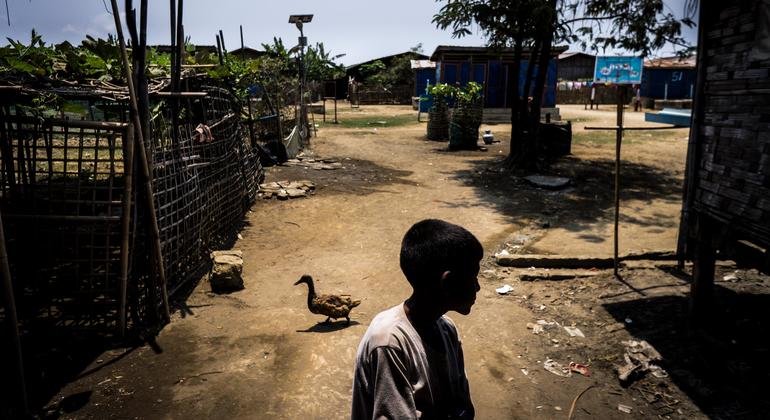The Rakhine state in Myanmar has been a site of ongoing conflict and violence, particularly against the Rohingya community. In 2017, a brutal crackdown by the military led to the killing of thousands of Rohingya men, women, and newborns, as well as the displacement of hundreds of thousands of community members. Many Rohingya are still living in refugee camps in Bangladesh, facing dire living conditions. The United Nations High Commissioner for Human Rights, Volker Türk, expressed concern over the situation in Rakhine, stating that civilians, especially the Rohingya, are at particular risk in the current conflict.
The breakdown of a year-long informal ceasefire between the military and the Arakan Army (AA) has led to widespread fighting in Rakhine. Fifteen out of the 17 townships in the state have been affected by the conflict, with intensified fighting in certain areas. The military’s loss of territory to the AA has raised concerns about a potential battle for the state capital, Sittwe. The presence of large Rohingya populations in conflict-affected areas further increases the risks faced by civilians, who are caught in the crossfire between armed factions.
In a disturbing development, the military has resorted to forcibly conscripting, bribing, and coercing Rohingya individuals to join their ranks as they face defeat in the conflict. This action is particularly concerning given the history of violence and discrimination against the Rohingya, including the denial of citizenship. Reports also indicate that both Rohingya and ethnic Rakhine villagers have been coerced into burning each other’s homes and villages, escalating tensions and violence in the region. The Office of the High Commissioner for Human Rights (OHCHR) is working to verify these reports, despite facing challenges due to a communications blackout in Rakhine.
The High Commissioner highlighted the presence of disinformation and propaganda in the conflict, including claims that “Islamic terrorists” have taken hostages from the Hindu and Buddhist communities. This rhetoric mirrors past narratives that have fueled communal violence and attacks against the Rohingya in the region. Türk called for countries with influence on the Myanmar military and armed groups involved in the conflict to take immediate action to protect all civilians in Rakhine and prevent another episode of persecution against the Rohingya. The international community must step in to prevent further atrocities and ensure the safety and well-being of all civilians in the conflict-affected areas.
The situation in Rakhine state underscores the urgent need for a peaceful resolution to the conflict and the protection of vulnerable communities, particularly the Rohingya. The ongoing violence and humanitarian crisis in the region require immediate attention and action from the international community to prevent further loss of life and suffering. It is crucial for all parties involved to prioritize the protection of civilians and respect for human rights in order to achieve a sustainable and inclusive peace in Rakhine and Myanmar as a whole.









